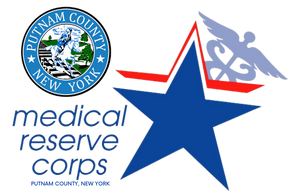
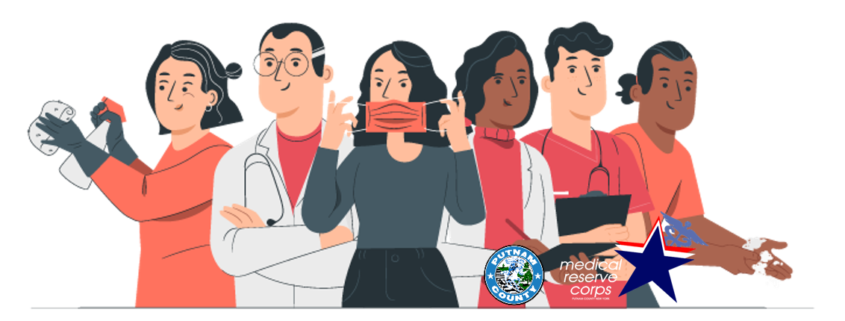
PUTNAM COUNTY MRC
LENDING A HELPING HAND TO OUR COMMUNITIES
Disasters can strike close to home and without any notice. MRC volunteers make a difference in your community. We can’t do it without you.
WHO VOLUNTEERS FOR THE MRC?
We need...
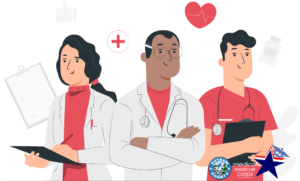
Medical Professionals
Physicians
Physician Assistants (PAs)
Registered Nurses
Nurse Practitioners
Infectious Disease Specialists
EMTs
Mental Health Professionals
Dentists
Veterinarians
Pharmacists
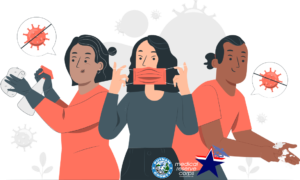
Support Staff
Interpreters / Translators
Clerical/Computer Support
Administrative Support
Data Entry Support
Logistical Support
Anyone who is willing to help!
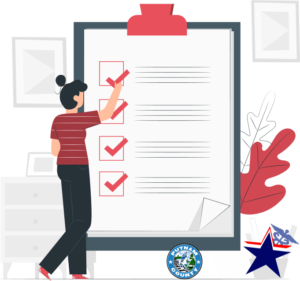
SO YOU’RE READY TO VOLUNTEER, WHAT’S NEXT?

DEVELOP YOUR SKILLS
As a member of the Putnam County Medical Reserve Corps, you will have the opportunity to learn new skills, attend a variety of trainings, and participate in preparedness drills to hone your skills.
MRC volunteers currently have the opportunity to attend a free, online QPR Training. QPR stands for Question, Persuade, Refer, and is meant to act as steps to help prevent suicide. Using QPR, you can help someone to reduce potential suicidal thoughts and behaviors and make a positive difference in someone’s life. For more information, please contact
Are you interested in seeing what the Putnam County Medical Reserve Corps is up to? Read one of the newsletters here:
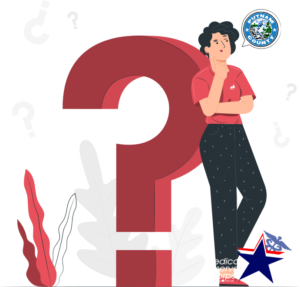
FAQs
Communities benefit from having MRC volunteers ready to respond to emergencies. People volunteer for many reasons, but some volunteer for the MRC because:
- It’s a way to offer their skills that might not have been used before because they were not adequately prepared to be part of the response effort.
- It’s a significant benefit to communities because skilled volunteers offer services during the year to augment existing public health efforts or provide emergency backup that would not otherwise be available.
- It’s a chance to belong to a group with a strong sense of mission and purpose, and contribute to the health and well-being of the community.
- It’s a chance to qualify for special incentives (e.g., free training affiliated with the PCDOH).
Volunteers are at the very heart of the MRC. The existence of this nationwide, community-based movement is due to the willingness of volunteer to serve their communities in times of need. Without that generous offer of service, there would be no MRC.
No skill is overlooked. We can take all skills to help us. MEDICAL PROFESSIONALS
- Physicians, Nurses Practitioners, Infectious Disease Specialists, Emergency Medical Technicians, Mental Health Professionals, Dentists, Veterinarians, Pharmacists
SUPPORT STAFF
- Interpreters/translators, Clerical/Computer Support, Administrative Support, Data Entry Support, Logistical Support
The MRC Program has developed the MRC Core Competencies, which is a guide for training MRC volunteers at the local level. Core Competencies represent the baseline level of knowledge and skills that all MRC volunteers should have, regardless of their roles within the MRC unit. They also provide a framework for units’ training component and assist in describing what communities can expect of their MRCs. Because the core competencies establish only a minimum standard, units may choose to expand on the competencies in order to train volunteers at a more advanced level. Units may also choose to link the MRC core competencies to other existing sets of competencies for health professionals. For more information, please view the Core Competencies established at the national level.
Emergency preparedness and response is a highly coordinated effort that allows communities to maximize their capabilities during times of extraordinary disorganization and stress. Volunteers may already know how to perform some of the necessary medical and health functions. In most cases, training as an MRC volunteer focuses primarily on learning local emergency and health procedures, and other methods to enhance volunteer effectiveness.
Perhaps the most important part of training is learning how to work as a team member. An organized, well-trained MRC unit is familiar with its community’s response plan, knows what materials are available, knows its response partners, and knows where its skills can be put to best use in a coordinated manner.
All MRC volunteers need to undergo orientation to the MRC, which includes an overview of the system in which the MRC’s activities occur, whether in relation to emergency response or public health, or both.
Support/administrative volunteers receive guidance on how to perform their particular functions, which vary depending on the needs of particular communities. Overall, the training includes support skills training, communications, the Incident Command System, and other local requirements.
Training requirements for front-line volunteers is typically extensive and specialized. Generally, these volunteers receive training in primary emergency response and public health procedures, including basic life support CPR, Community Emergency Response Team training, and basic first aid.
Just-In-Time Training is also provided at the time or prior to deployment or an event.
In the event of a public health emergency, the Medical Reserve Corps of Putnam County, an affiliated volunteer organization of the County, shall compose a part of the County’s disaster emergency response personnel, as designated under Putnam County’s Comprehensive Emergency Management Plan (CEMP) and the Putnam County Department of Health Public Health Emergency Preparedness and Response Plan (PHEPR Plan). Under New York State law, MRC volunteers who have been called upon and are engaged as part of the County’s emergency response personnel, acting under the CEMP and the PHEPR Plan when responding to a public health emergency, are provided certain immunity to liability on official missions under New York State Executive Law Section 29-b. In addition, the Putnam County MRC is afforded liability protection as follows: Worker’s compensation insurance from the County on all official missions; medical malpractice insurance as otherwise may be available in certain public health emergency situations under State Law; other liability protection that may otherwise be afforded during a public health crisis as provided by State and/or Federal law.
The MRC program seeks volunteers to assist with emergency preparedness and response efforts. Volunteers in the MRC program include:
- Practicing, retired, or otherwise employed medical professionals, such as doctors, nurses, emergency medical technicians, pharmacists, nurses’ assistants, and others.
- Public health professionals.
- Community members without medical training can assist with administrative and other logistical support functions.
No. The MRC program seeks medical and public health professionals to assist with emergency preparedness and response efforts. However, other volunteers who have no medical or healthcare backgrounds also are needed to conduct emergency preparedness and response efforts. Community members without medical training can assist with administrative and logistical support functions. These volunteers give their time on an ongoing basis in coordination with other experts willing to donate their time and knowledge for special aspects of the effort.
Medical and other health volunteers can provide an important “surge” capacity at the beginning of an event. They also can augment medical staff shortages at local medical and emergency facilities. So communities often need medically trained individuals to fill in the gaps in their emergency response plans and to improve their response capabilities overall.
Possible types of “front-line” medical and public health volunteers include:
- Physicians (including surgeons, medical specialists, osteopaths)
- Physician Assistants
- Nurses (nurse practitioners, registered nurses, licensed practical nurses, nursing assistants)
- Pharmacists
- Dentists
- Dental Assistants
- Optometrists
- Veterinarians
- Emergency medical technicians
- Public health workers
- Epidemiologists
- Infectious disease specialists
- Toxicologists
- Mental health practitioners (psychologists, substance abuse counselors, social workers)
- Health educators/communicators
- Other medical and public health professionals
Individuals with a non-medical or healthcare background typically serve their community by assisting with administrative and logistical support. Possible types of administrative and other support volunteers include:
- Administrators and business managers
- Administrative assistants and office support staff
- Clerical/computer support staff
- Data entry staff
- Trainers
- Volunteer coordinators
- Supply and logistics managers
- Interpreters/translators
- Other support personnel
Although the MRC volunteers are ready to respond to disasters or emergencies, part of the MRC program’s mission is to foster disaster preparedness. MRC volunteers may also be called to help during non-emergency times.
During non-emergent times, MRC volunteers strengthen the overall health of Americans by participating in general public health initiatives such as flu vaccination clinics. MRC volunteers also promote improving health literacy, increasing disease prevention, and supporting public health preparedness
MRC volunteers do not have to be available all the time. Some volunteers may only be interested in making a minimal commitment during times of crisis or for other specific community needs. These preferences are respected, given that they can be accommodated by the MRC unit’s mission and work plan.
MRC Unit Coordinators match community needs for emergency medical response and public health initiatives with volunteer capabilities. They also determine prospective volunteers’ availability and whether they have other obligations, such as regular work responsibilities, that might conflict with serving the MRC in times of limited advanced notice. Different people will have different amounts of time to give.
Doctors, Physician Assistants, Nurse Practitioners, Registered Nurses, and NYS Emergency Medical Technicians.
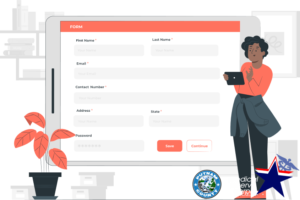
HAVE QUESTIONS?
CONTACT US
FOLLOW US ON FACEBOOK
Facebook.com/PutnamMRC
ABOUT US
The Putnam County Medical Reserve Corps (MRC) recruits and trains volunteers to support the county in the event of an emergency or disaster. Their mission is to serve the community by strengthening public health, improving emergency response capabilities and building community resiliency. The Putnam County MRC is one of nearly 1,000 MRCs nationwide that organize locally.
Message from the MRC Coordinator
“MRC volunteers have been instrumental in the health department’s COVID response working alongside County staff. Their assistance has been invaluable – they contributed hundreds of hours of volunteer time and made a difference in the health and well-being of our community.”